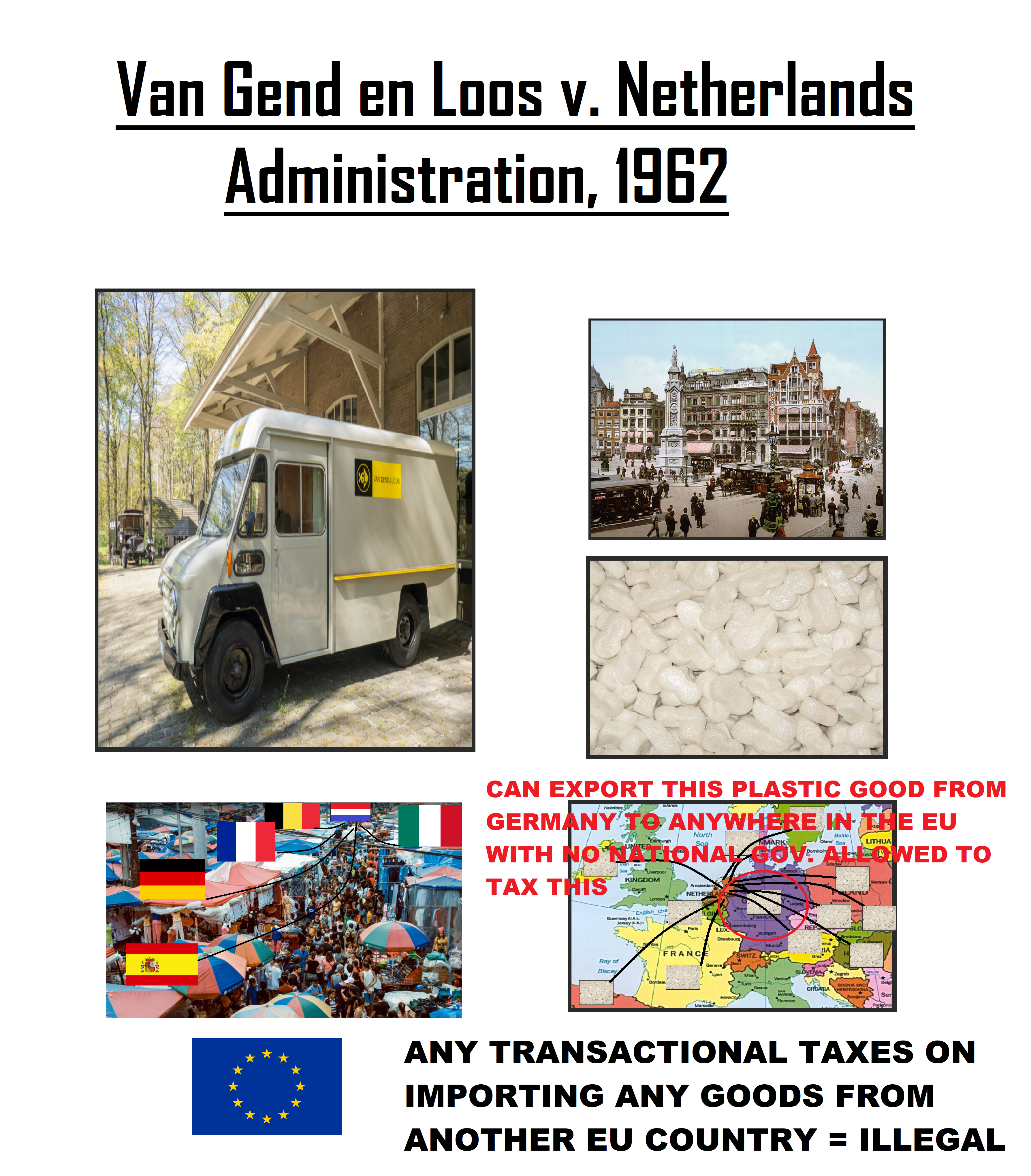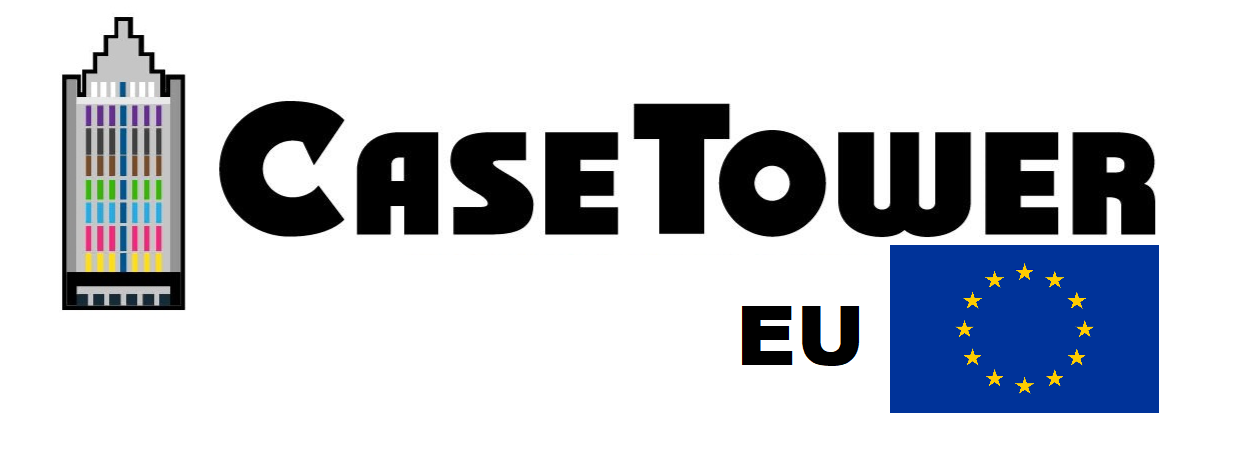Van Gend en Loos v Netherlands Administration of Berlastingen, Case 26/1962, EC
Citation: Van Gend en Loos v Netherlands Administration of Berlastingen, Case 26/1962, EC
Rule of thumb: Is an EU state allowed to impose a transactional tax on goods or services being imported into them from another EU state? No, not if they do not tax those goods & services in their own country. This case affirmed the EU jurisprudence principle of 'vertical direct effect of EU law' - it confirmed that all persons can rely on EU law in their national Courts against state organs. It also affirmed that additional tax tariffs cannot be charged on imports of goods that are not chargeable on the same products within the country. Further, this case also affirmed the point of public international law that the EU was 'a new legal order' of higher status than the sovereigns - the sovereign states had 'limited their sovereignty'.
Facts: The facts of this case were that Van Gend en Loos were a postal and transportation company in Holland. They imported a chemical called urea formaldehyde from Germany to use as part of their business operations. Urea formaldehyde allowed them to create foam packaging in some way or another. Van Gend en Loos were charged an additional tax/tariff for importing this chemical from Germany. Van Gend en Loos paid this tariff at the time to the tax authority, however they then tried to claim it back in their tax return. The Netherlands tax revenue authority refused to refund Van Gend en Loos this tariff so the matter ended up going to Court.
Arguments: Van Gend en Loos argued that them being charged this illegal tariff on a foreign good was in clear breach of the Treaty of Rome which the Dutch Government had signed up to. Van Gend en Loos argued that they were therefore entitled to this tariff payment to be returned. The Dutch tax authority argued firstly that the Treaty of Rome was a treaty between countries, and therefore countries could only claim breaches of this treaty against each other, and individuals could not rely on it. The Dutch authority further argued that there were good reasons for having this chemical with an additional tariff, such as additional quality and health checks being made upon it.
Judgment:
The Court upheld the arguments of Van Gend en Loos. In a landmark Judgement they affirmed the principle of horizontal direct effect - all persons are entitled to rely on EU law against state organs, not just countries. Secondly, they argued that the Dutch authorities could not apply this tariff on the import of the chemical from Germany, when it was not similarly taxed on Dutch people selling it. They finally affirmed once again that the EU was a new legal order in which sovereign states had limited their sovereignty in certain limited areas.
Ratio Decidendi Judgement quote, "the Community constitutes a new legal order of international law for the benefit of which the states have limited their sovereign rights, albeit within limited fields ... Independently of the legislation of member states, Community law therefore not only imposes obligations on individuals but is also intended to confer upon them rights which become part of their legal heritage. These rights arise not only where they are expressly granted by the Treaty, but also by reason of which the Treaty imposes defined way upon individuals as well as upon the member states and upon the institutions of the community... The wording of article 12 contains a clear and unconditional prohibition which is not a negative obligation. This obligation, moreover, is not qualified by any reservation on the part of the states which would make its implementation conditional upon a legislative measure under national law. The very nature of this prohibition makes it ideally adapted to produce direct effects in the legal relationship between member states and their subjects ".
'The Community constitutes a new legal order... Community law therefore not only imposes obligations on individuals but is also intended to confer upon them rights... the wording of article 12 contains a clear and unconditional prohibition...'
‘Article 12: Member States shall refrain from introducing, as between themselves, any new customs duties on importation or exportation or charges with equivalent effect and from increasing such duties or charges as they apply in their commercial relations with each other’.

Warning: This is not professional legal advice. This is not professional legal education advice. Please obtain professional guidance before embarking on any legal course of action. This is just an interpretation of a Judgment by persons of legal insight & varying levels of legal specialism, experience & expertise. Please read the Judgment yourself and form your own interpretation of it with professional assistance.

